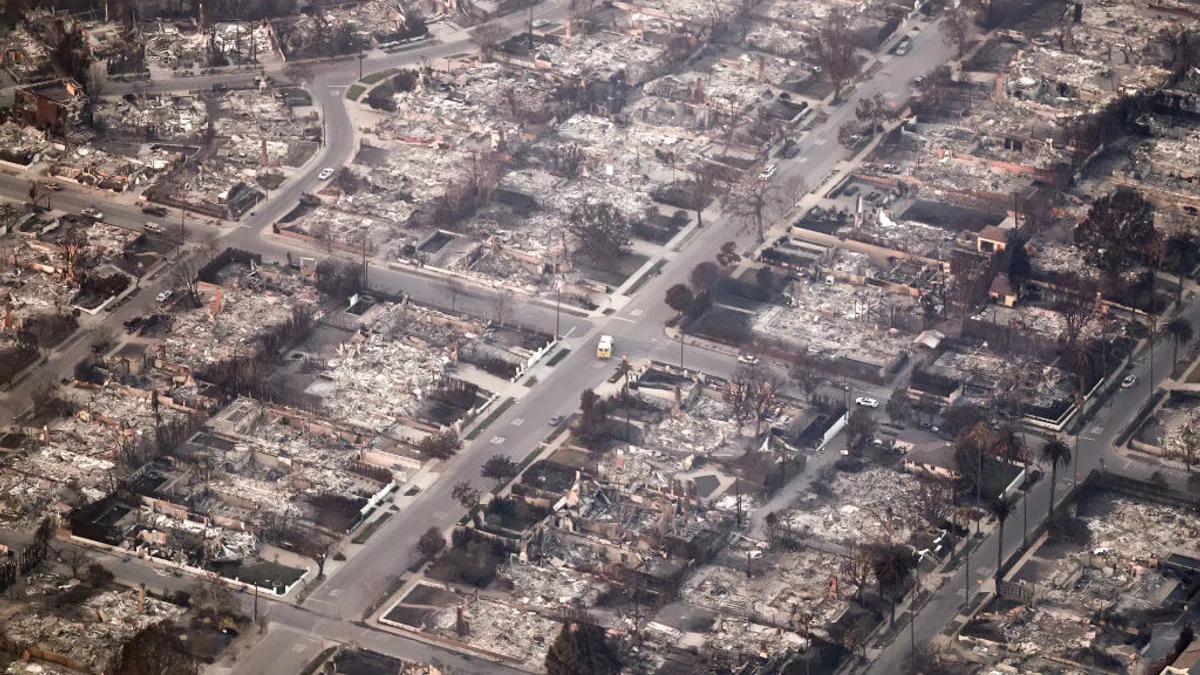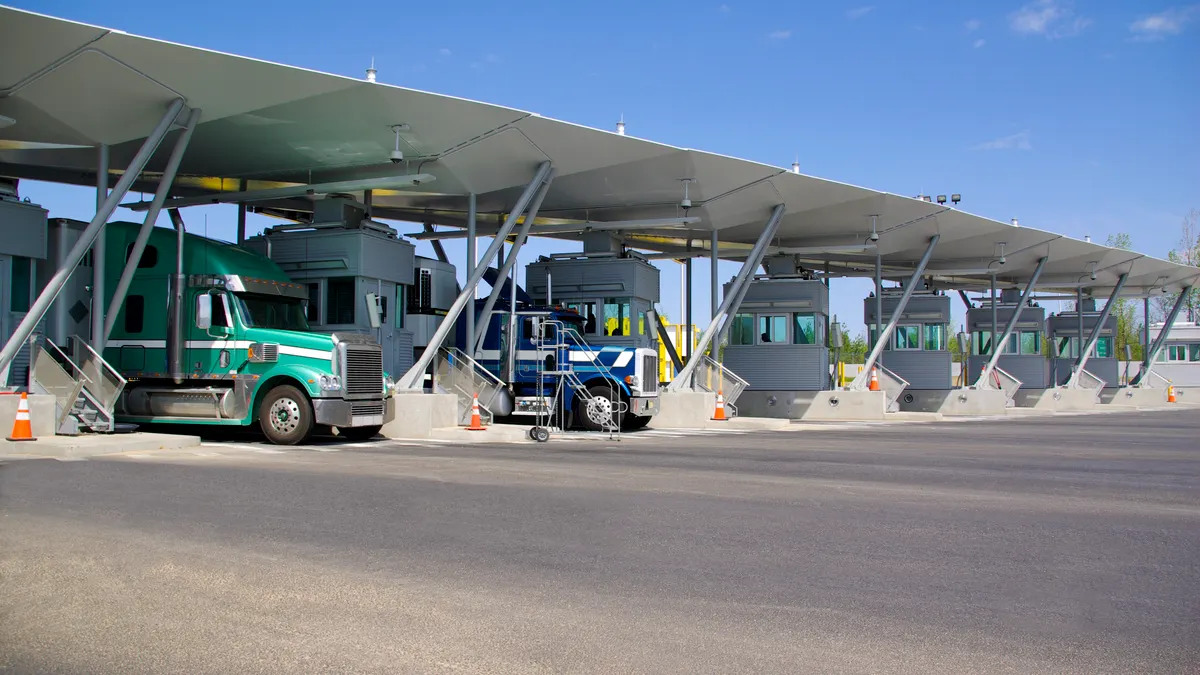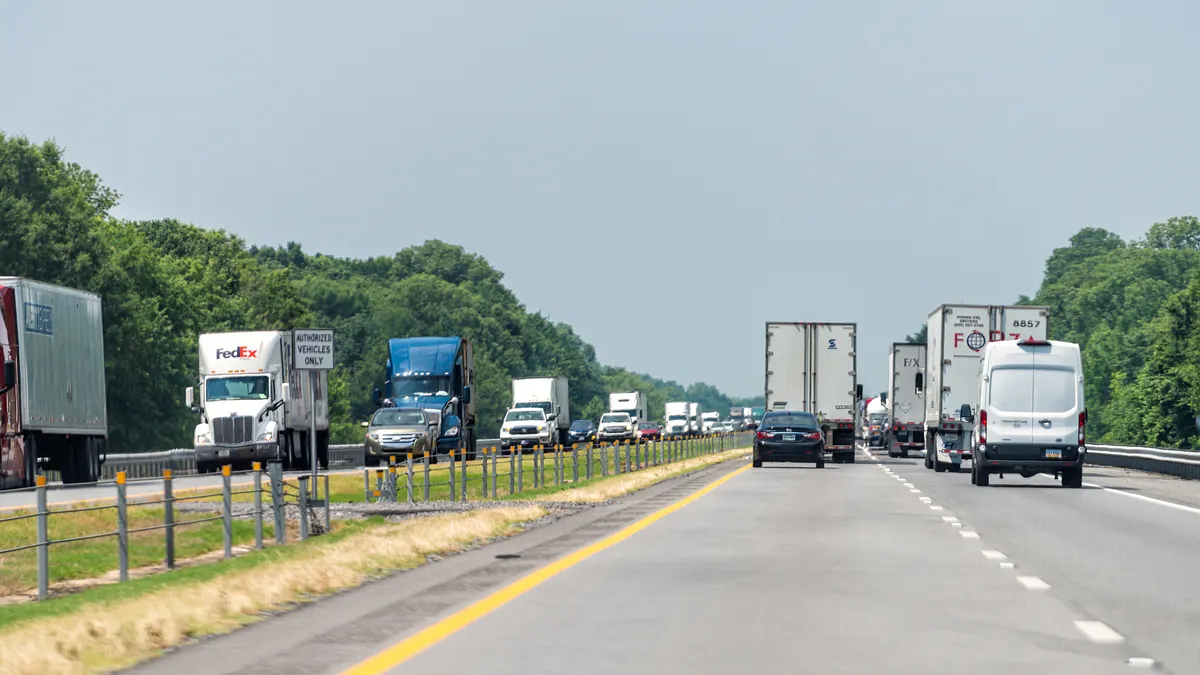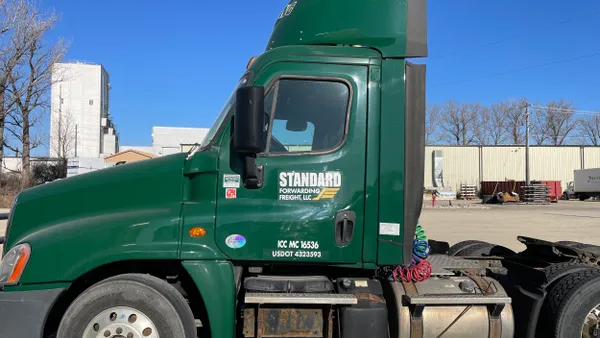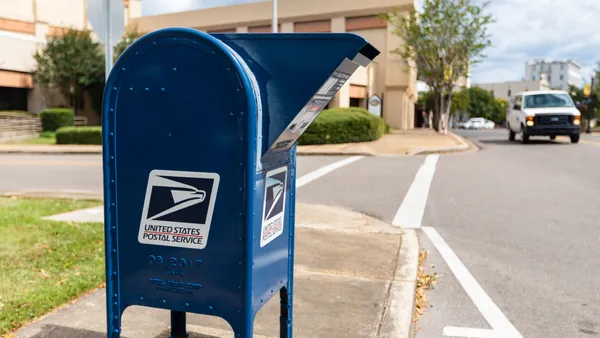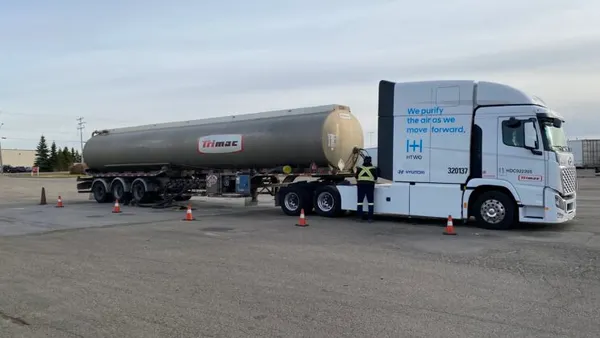Deadly wildfires across Los Angeles razed entire neighborhoods, closed highways and forced mass evacuations this week, disrupting trucking operations and all other non-emergency activity in the affected areas.
The death toll had reached 10 as of Friday, and around 9,000 structures were swallowed by five separate out-of-control blazes driven by the Santa Ana winds, the Los Angeles Times reported.
Even before the fires broke out, the California Trucking Association was sharing alerts about the potential for truck rollovers caused by the high winds, CEO Eric Sauer told Trucking Dive in an interview Thursday.
As the fires spread, the association has been sending multiple updates per day on road closures and other critical information from partners in the California Office of Emergency Services, Sauer said.
“We've tried to do our best to provide updates in real time to our members and beyond, either on social media or through email blasts and alerts,” he said.
One member told Sauer he expected to lose his home in Malibu, the association CEO said. The group has already begun the process of collecting donations to aid in the humanitarian response.
“This has just caused just complete chaos,” he said. “The pure devastation that's going on is just heartbreaking.”
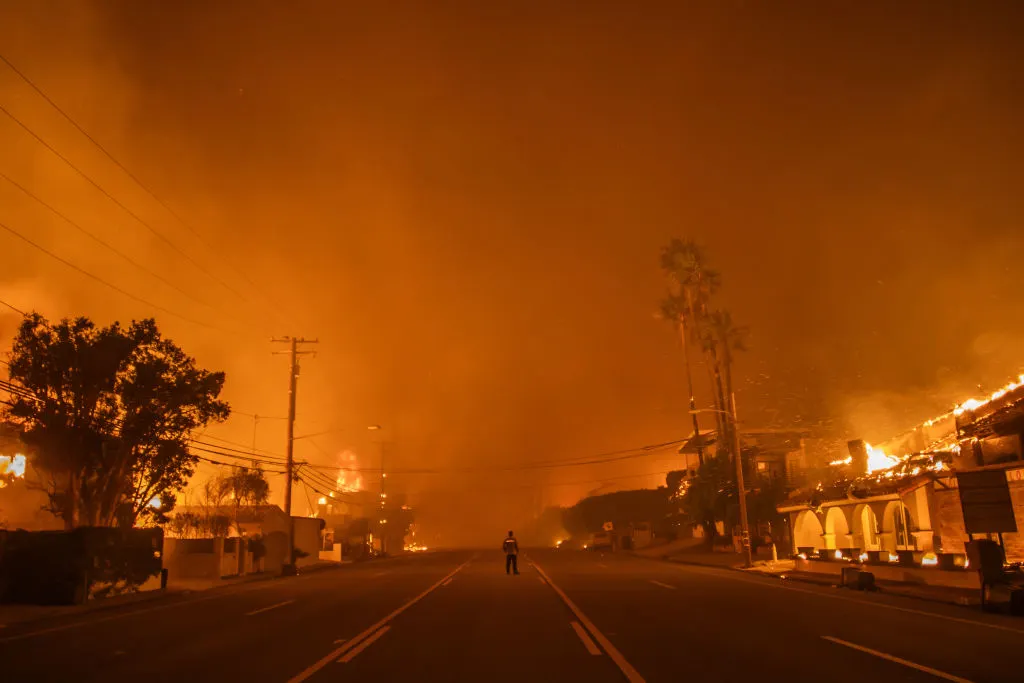
Smoke from the wildfires stretched all the way to San Pedro Bay, causing air quality and visibility issues, said Matt Schrap, CEO of the Harbor Trucking Association, which represents West Coast port truckers.
The smoke hasn’t affected Port of Los Angeles or Port of Long Beach operations, but overturned trucks and evacuations snarled traffic on Interstate 5 and into the Inland Empire, Schrap said.
“When you evacuate 110,000 people, it's going to have a residual impact on traffic,” he said. “And then, of course, the high winds have also presented some challenges.”
Harbor Trucking Association members are also mobilizing resources and supplies to help those who have been displaced by the disaster, Schrap said.
“As an industry, we're trying to come together to support those who have been deeply impacted by this devastation,” he said.
The American Logistics Aid Network, a trucking industry nonprofit founded after Hurricane Katrina, has been sharing lists of local nonprofits in need of donations, said Executive Director Kathy Fulton.
Meanwhile, it has sent its usual post-disaster guidance to those in the industry seeking to help: Don’t self-deploy to an emergency area or send resources without checking what aid is needed and where.
“We're talking to all of our partners who are on the ground, making sure that they have the resources they need,” she said. “At the same time, we're saying, ‘OK, two days, five days, 10 days — what is that going to look like? What are the things that you're going to need? Where do they need to come from?’”


